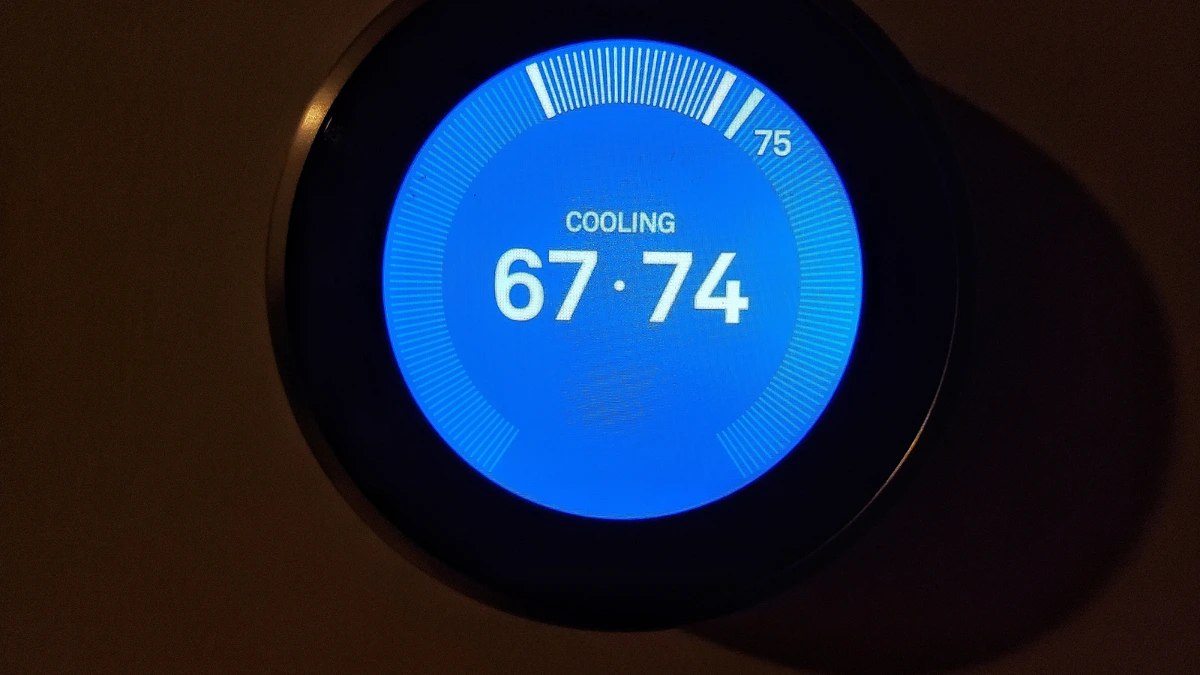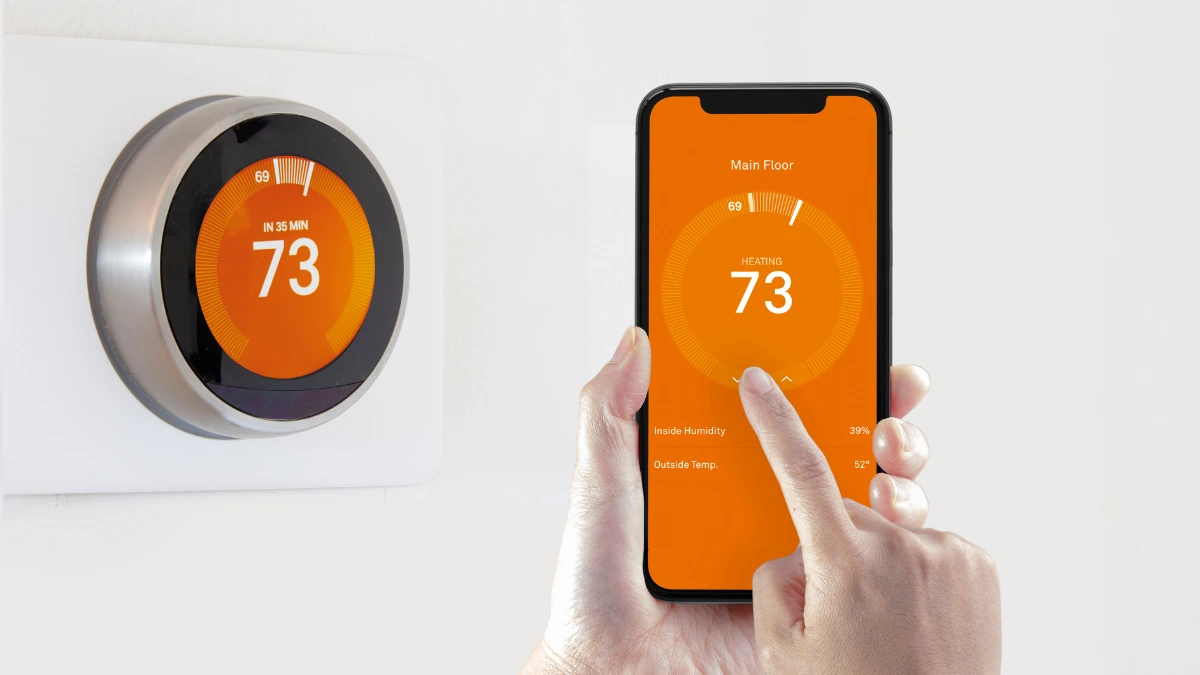Getting to the smart home of your dreams is now not impossible, because there are many smart home appliances available, one of which is a smart thermostat.
Your smart home will be more complete with the presence of a smart thermostat that can automatically measure the temperature of your room according to your preferences.
Are you familiar with this smart home appliance? This article will provide information related to smart thermostats, starting from the definition, how they work, their functions, excellent features, and their regulation in Indonesia.
What is a Smart Thermostat?

A smart thermostat is an electronic device that regulates temperature based on sensor assistance. This smart device is also connected to the internet via WiFi and can be connected directly to your smartphone or tablet.
With its connectivity, of course, you can set the temperature from anywhere and schedule temperature settings according to your wishes. With the home automation system, this device can also recognize the user’s habit patterns and adjust the temperature based on your time and location.
How Does it Work?
The way a smart thermostat works, in simple terms, is that it knows the temperature and adjusts according to your preferences. Here is how it works in more detail:
- Temperature detection sensor: Sensors built into the thermostat will detect the room temperature and outdoor temperature.
- Determines the ideal room temperature: After comparing the room temperature and outdoor temperature, the thermostat will determine the ideal room temperature for you.
- Connectivity with other devices: A thermostat that is connected to an air conditioner will be able to regulate it automatically. For example, if it is too hot during the day, the thermostat will automatically turn on the air conditioner. Conversely, if it is too cold, it can turn off the AC.
Another amazing thing about this smart device is that it can be programmed to operate according to a predetermined schedule or even learn from the user’s habits.
The Functions

Smart thermostats that regulate temperature based on sensor assistance have several functions. Here are some of its main functions:
1. Provides comfort
One of the functions of a smart thermostat is to provide user comfort. With its ability to adjust the temperature automatically, of course, it will improve room comfort. You can get the ideal temperature at home as you want.
2. Automation of temperature measurement
Providing automatic temperature measurement is another function of a smart thermostat. Your habits in setting the room temperature can be read by this smart device, so that in the future, your usage habits can be adjusted automatically.
3. Maximize the smart home appliance
By using a smart thermostat, of course, it will make your smart home appliance maximum. Thermostats that are connected to other smart devices, such as smart air conditioners, will be able to adjust the temperature according to what the thermostat wants to achieve.
4. Save costs
Another function of a smart thermostat is to save your home operating costs. This device can maximize energy efficiency, so it can help reduce your home electricity bill.
Best Features
Not only for regulating temperature, smart thermostats also provide a more comfortable and efficient experience. Here are the top features that you can enjoy:
- Automatic schedule setting: No need to manually set the temperature repeatedly.
- Smart notifications: You will be notified if the temperature rises dramatically or there is a problem with the device.
- Multi-user access: The temperature can be set by all family members through their respective accounts.
- Energy usage reports: You will get reports on your electricity usage and how to save.
Regulation in Indonesia

The smart thermostat uses communication technologies such as WiFi that operate within a specific frequency spectrum. In Indonesia, any WiFi-based wireless device is required to have a DJID (Directorate General of Digital Infrastructure) under the Ministry of Communication and Digital (KOMDIGI).
Smart thermostat regulation is based on KEPMEN No. 12 Tahun 2025, which requires all radio frequency-based devices to meet specific technical standards before being sold in the country.
The DJID certification ensures that the product meets government safety and quality regulations and does not interfere with other communication devices. The certification process involves technical testing, such as frequency adjustments, safety checks, and compatibility with the surrounding environment.
Once the tests are completed, products that pass are listed in a Test Result Report, which confirms that the product is safe and ready for sale in Indonesia. This report reassures customers that the product meets technical standards and is secure.
For companies wanting to sell a smart thermostat in Indonesia, we are available to assist with this process. This service includes preparing technical and legal documents, conducting required testing, ensuring compliance with regulations, helping companies streamline the certification process, and giving consumers confidence in certified products. [UN].

